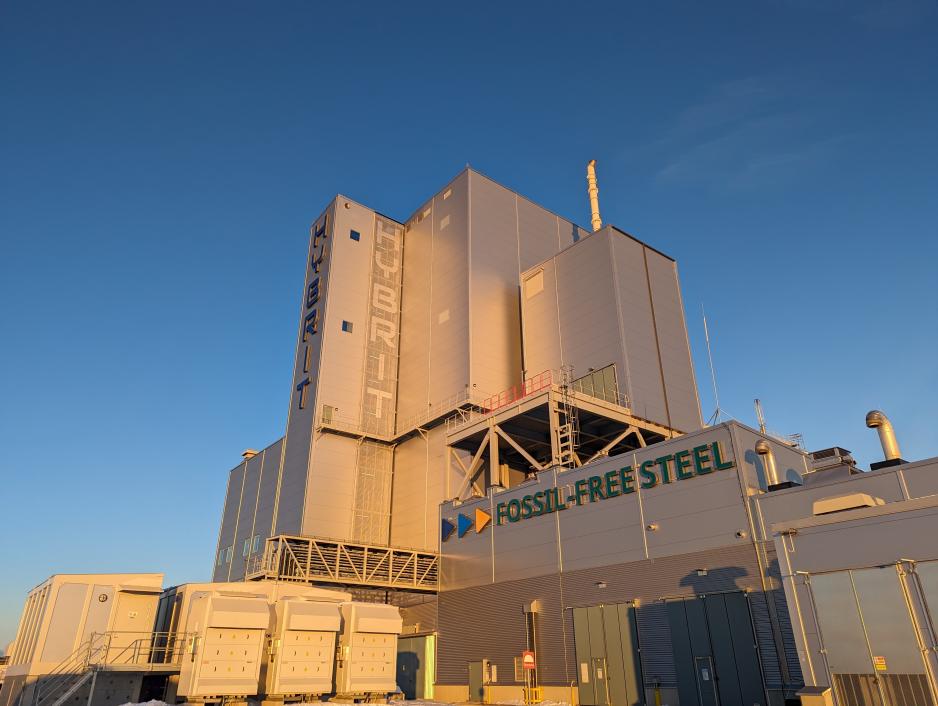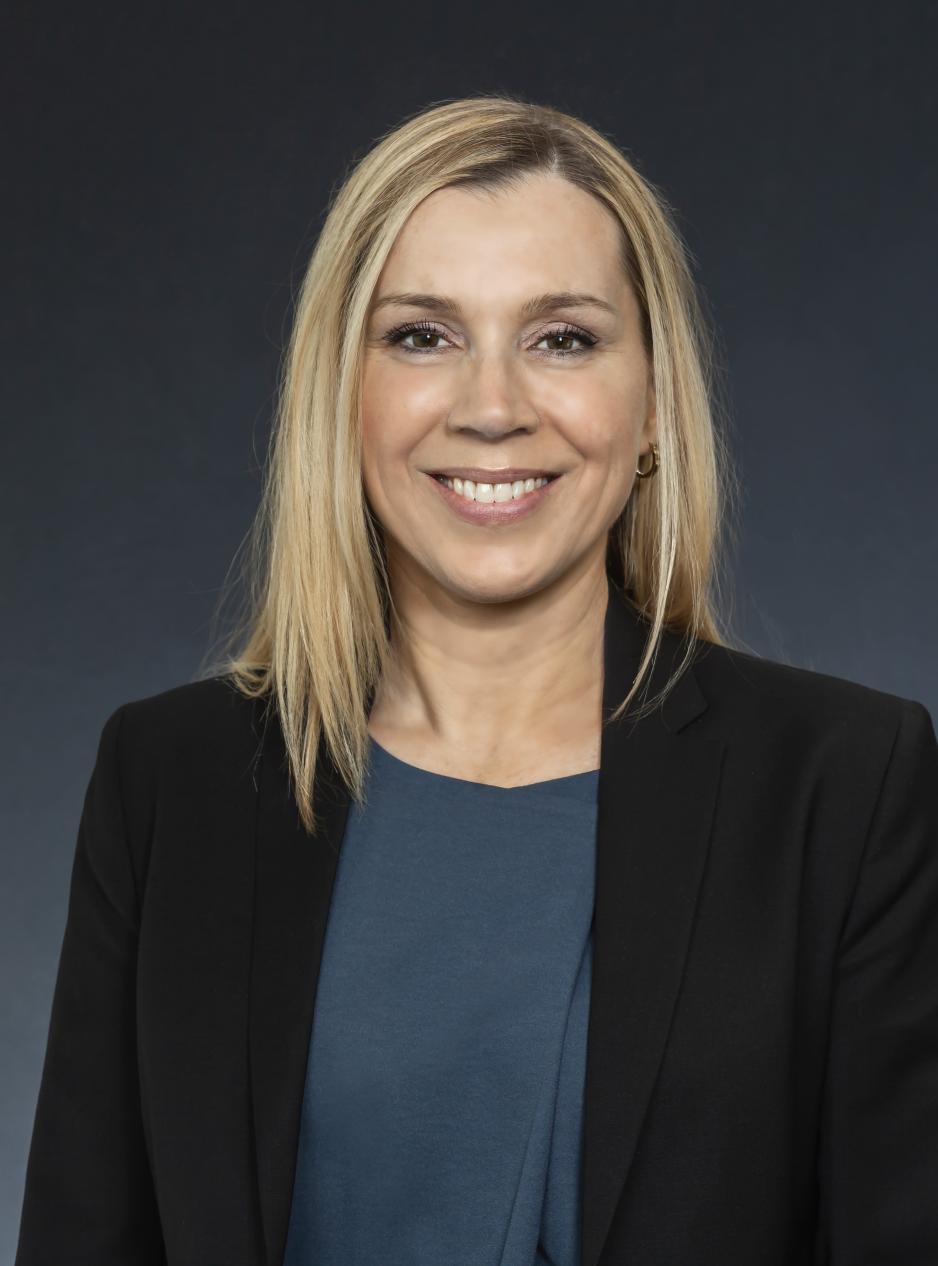Fossil-Free Steel Production in Northern Sweden: The Hybrit Project Goes Industrial

The Hybrit pilot plant for test production of sponge iron in Luleå, Northern Sweden, started operating in 2020. In 2021, Gällivare was chosen for the planned demonstration plant to produce fossil-free iron sponge at an industrial scale. Iron sponge is used to make steel. (Photo: Helena Sundberg)
The Swedish Hybrit project, aiming for fossil-free iron and steel production, is now moving into the next phase in which the process will be implemented in an industrial scale. The end report after six years of research was delivered this week.
The Hybrit project in Sweden is now taking fossil-free iron and steel production to an industrial scale.
This was reported earlier this week, as the initiators of Hybrit presented the results of six years of research in an end report to the Swedish Energy Agency.
The Hybrit cooperation started in 2016 between the steel company SSAB, the Swedish mining company LKAB, and the energy company Vattenfall. The project aims to transform the iron and steel industry by eliminating Co2 from production and creating a fossil-free value chain from mine to fossil-free steel with fossil-free pellets, fossil-free electricity, and hydrogen.
"The technology to eliminate more than ten percent of Sweden's Co2 emissions now exists," says the initiators in connection with the report.
Fossil-free value chain
In short, the Hybrit technology entails fossil-free iron ore pellets being reduced to iron sponge, or direct reduced iron, with the help of hydrogen, and without using fossil coal.
The iron sponge is thereafter used to produce steel.
Today, steel production is largely based on fossil coal to produce pig iron and crude steel in blast furnaces. With the Hybrit technique, the iron sponge is melted into pig steel in an electric arc furnace.
The fossil-free iron ore pellets used in the first step of the process was developed at LKAB's pellet plant in Malmberget, Northern Sweden, where the process includes bio oil instead of fossil fuel.

Jenny Greberg, Vice President Technology at LKAB and board member of Hybrit Development AB. (Photo: Susanne Lindholm)
Industrial scale
The presented results thus pave the way for Hyrbit to move into a new phase, focusing on large-scale industrialization of the technology.
“It has been a groundbreaking journey in a short period of time. The results from the pilot phase show that the process works and that we are ready for the next stage, where the demonstration plant that LKAB plans to build in Gällivare [Northern Sweden, ed. note] will be the first step towards industrial production of sponge iron,” says Jenny Greberg, Vice President Technology at LKAB and board member of Hybrit Development AB.
"Our high-quality iron ore combined with good access to fossil-free energy provides unique conditions for establishing a competitive value chain for future fossil-free iron and steel production,” she adds.
First in the world
The project is the first in the world to prove that the fossil-free value chain – from ore to steel – works on a semi-industrial scale.
So far, more than 5000 tonnes of hydrogen-reduced iron has been produced at Hybrit's pilot plant in Luleå.
Customers such as Volvo Group, Epiroc, Peab, and several others already use the fossil-free steel in vehicles, heavy machinery, buildings, and consumer products, and the interest in the product is great, says a LKAB press release.
“I am incredibly proud of everything HYBRIT has achieved since its launch in 2016. Thanks to the successful results of the pilot project, we are well on our way to fundamentally changing the iron and steel industry. At SSAB, we are now investing heavily to convert the entire Nordic production system to fossil-free steel production and have already started delivering fossil-free steel to customers on a smaller scale,” says Martin Pei, Chief Technology Officer at SSAB and Chairman of the Board of Hybrit Development AB.
Facts about Hybrit
The HYBRIT technology means that the iron ore pellets are reduced to sponge iron with hydrogen instead of coal and coke, which helps to eliminate virtually all CO2 emissions from iron and steel production.
The pilot plant for test production of sponge iron in Luleå, Northern Sweden, started operating in 2020.
The most extensive Hybrit pilot project is now ending. The project has run from 2018 until the summer of 2024.
In 2021, Gällivare was chosen as the location for the planned demonstration plant to produce fossil-free sponge iron on an industrial scale. Sponge iron, or direct reduced iron, is used to make steel.
In August 2021, SSAB produced the world's first fossil-free steel with HYBRIT technology and delivered it to customers.
The global steel industry currently accounts for 7 percent of total global carbon dioxide emissions. With the help of HYBRIT technology, the companies can help reduce Sweden's carbon dioxide emissions by 10 percent and Finland's by 7 percent.
The Hybrit project has been awarded funds by the EU's Innovation Fund, as well as by the Swedish funding program Industriklivet.
Source: LKAB and Hybritdevelopment.se




